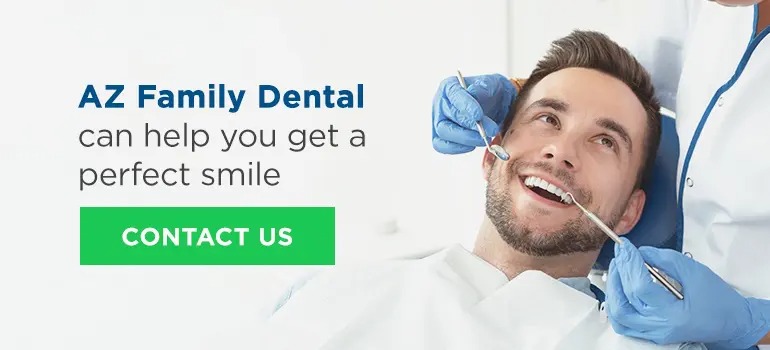
Various culprits, including stress, sleep apnea, and acid reflux, contribute to grinding your teeth. This blog isn’t about why you’re suffering from bruxism but how to combat it.
We’ll look at the benefits of dental night guards and answer the following questions:
- What does a night guard for teeth do?
- How do I know if I need a night guard for my teeth?
- Is night guard better on upper or lower teeth?
- What’s the difference between a night guard and a mouthguard?
- Is it safe to sleep with a night guard?
- Should you wear a night guard every night?
What Does a Night Guard for Teeth Do?
People who grind or clench their teeth while they sleep can benefit from a night guard. These special dental guards have custom-fitted designs made of hard resin and acrylic materials to match your bite. Mouth guards can be worn day or night, but night guards, in particular, are made for night use. When properly designed, a night guard will reduce the activity of your jaw muscle during grinding and slow the wear down of your teeth.
How Do I Know If I Need a Night Guard for My Teeth?

Night guards are made for those who grind their teeth at night (bruxism). If you wake up in the morning with signs of teeth grinding, including additional symptoms that manifest, you may want to consider a night guard. Some common effects of teeth grinding include chipped or broken teeth, severe headaches, flat molars, and inflammation of the jaw muscles (TMJ).
Is Nightguard Better on Upper or Lower Teeth?
Nightguards are typically fitted for the upper teeth since this is more effective against bruxism, but they can be made for lower teeth if that makes more sense for the specific patient.
What’s the Difference Between a Night Guard and a Mouthguard?
While night guards are specifically designed to protect your teeth at night from grinding and clenching, mouth guards are meant to protect you from injuries and damage. Since any physical activity can involve an accident or injury, wearing a mouth guard can help limit your risk of injuries to your mouth and teeth. They help prevent broken or chipped teeth, tooth loss, or nerve damage to your teeth.
It doesn’t matter what age you are — both adults and children should wear mouthguards while playing contact sports like boxing, football, field hockey, and soccer.
However, mouthguards aren’t exclusive to contact sports. Even people who engage in non-contact sports or recreational activities are still at risk of a mouth injury and would benefit from wearing a mouth guard, including gymnastics, skateboarding, and skiing.
Therefore, mouthguards should be part of any athletic uniform. They not only protect your upper teeth, but they also protect your:
- Lips
- Jaw
- Tongue
- Face
- Inner cheek
Is It Safe to Sleep with a Night Guard?

Yes! Night guards protect the teeth at night from grinding and clenching. They’re essential for managing sleep bruxism and minimizing wear and tear on your teeth. To prolong and maintain your night guard, you can take several steps, including the following:
- Rinse your night guard before and after you use it.
- Brush your night guard with toothpaste and a toothbrush to clean, or use soapy, cool water to soften plaque and then rinse thoroughly.
- Bring your night guard to your dental check-up to have the dentist evaluate it and clean it thoroughly.
- Place your night guard in a sturdy container when storing and transporting — ensure there are vents on the storage unit to keep the piece dry and free from bacteria growth.
- Check your night guard regularly for signs it needs replacing, such as holes, rips, or discoloration.
- Keep your night guard out of hot water or the sun.
Keep an eye on your pet, too, as they may think the night guard is a chew toy. Always store it in a closed container out of your pet’s reach.
Should You Wear a Night Guard Every Night?
Being consistent with wearing your night guard is the best way to reduce damage from teeth grinding. It’s completely safe to wear your night guard every night, and it’s also recommended that you do. Building the habit can promote better sleep, minimize morning headaches, and reduce soreness.

Published On: January 26, 2018
Updated On: September 8, 2023
